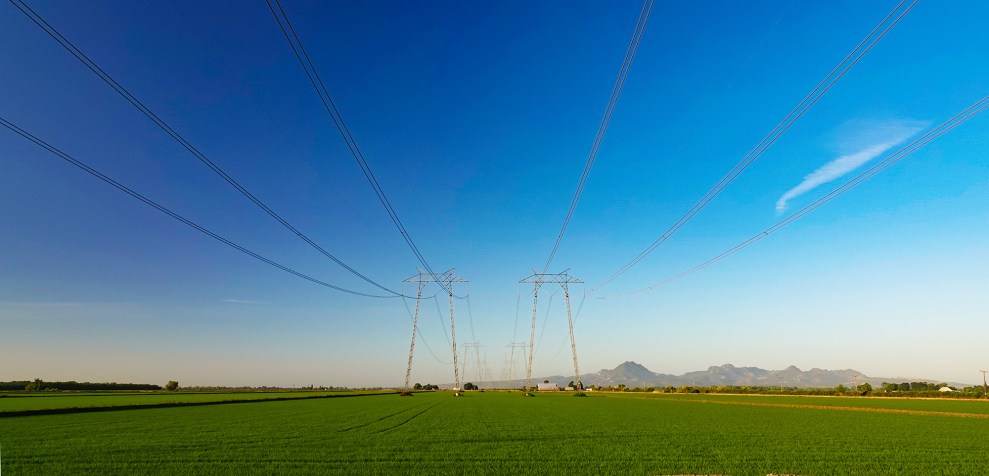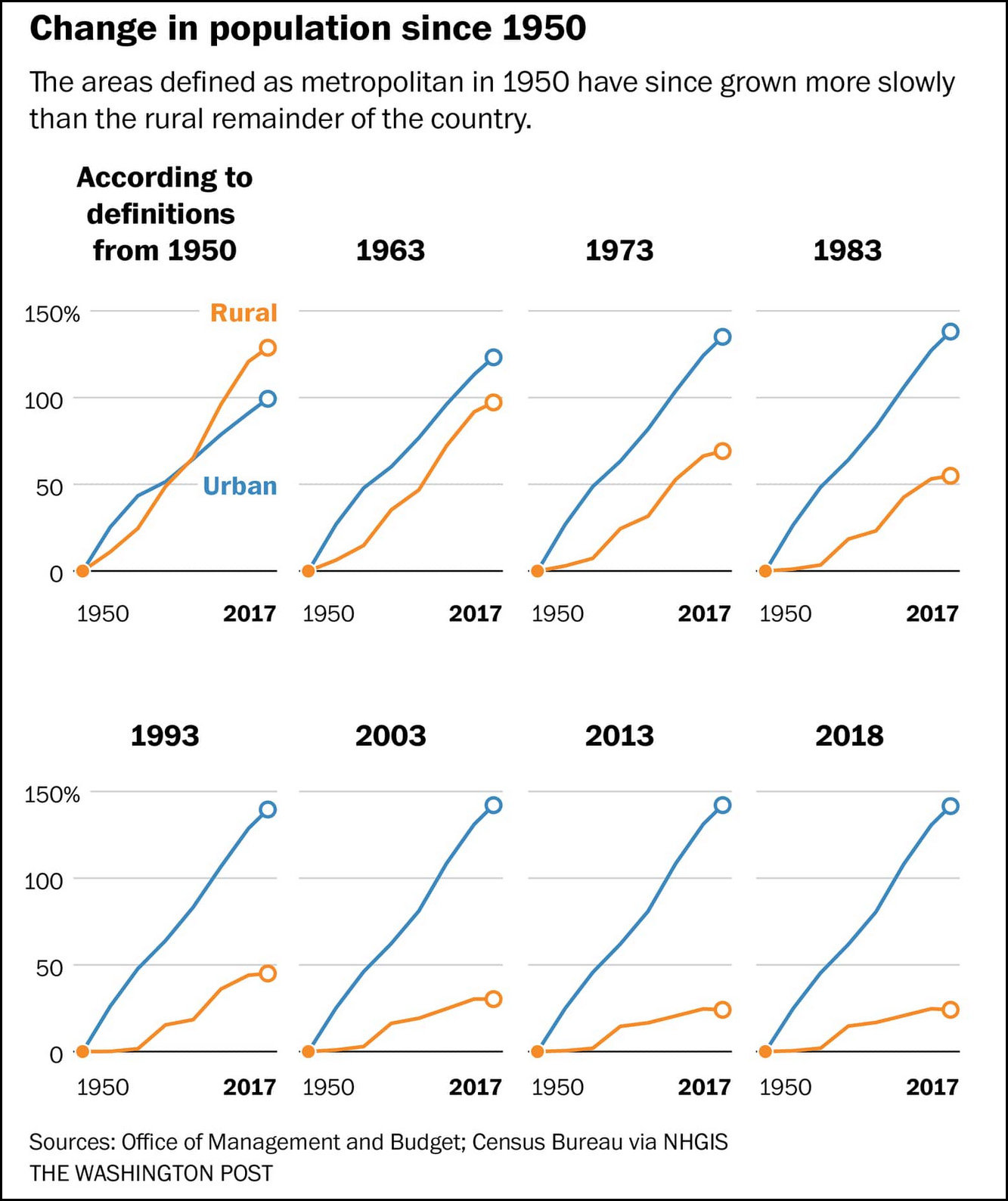
Maybe rural America is doing OK after all.Kevin Drum
By coincidence, the Washington Post ran a piece yesterday making the same case that I did this morning: rural areas aren’t really in economic decline. The argument presented by Andrew Van Dam is simple and intriguing.
It has to do with the way the Census Bureau defines rural. Basically, it doesn’t. It defines urban, and then labels everything left over as rural. And that’s a problem: their definition of urban is any city (plus its surrounding areas) with a population of 50,000 or more. Regardless of whether you think this is a good definition, you can see one big problem with it: any rural area eventually gets reclassified as urban if it’s successful and growing. By definition, the only areas left over are those that are declining or growing slowly, and those are the ones we classify as rural.
Van Dam makes the case that if we applied the Census definition to the country in 1950 and then tracked all the areas defined as rural in 1950, it turns out that rural America is doing fine. But in real life, we reclassify these areas every few years and move the best performers into the urban column. Here’s what that looks like:

By 2018, we had reclassified so much of America that the population of “rural” America had barely grown at all because the only places left were the slowest-growing bits:
In a way, rural areas serve as urban America’s farm team: All their most promising prospects get called up to the big leagues, leaving the low-density margins populated by an ever-shrinking pool of those who couldn’t qualify….[But] the character of a place doesn’t necessarily change the moment a city crosses the 50,000-resident mark.
….About 6 in 10 U.S. adults who consider themselves “rural” live in an area classified as metropolitan by standards similar to those used above, according to a Washington Post-Kaiser Family Foundation poll conducted in 2017. And 3 in 4 of the adults who say they live in a “small town”? They’re also in a metro area.
Bottom line: the “decline” of rural America is mostly a statistical artifact. We keep redefining rural to exclude any successful rural areas, and by now the only rural places left are the ones that have been persistently bad performers for the past 70 years. But if “persistently bad performer for the past 70 years” is your definition of rural, it’s merely a tautology to say that rural areas are performing badly.

















